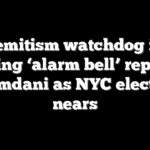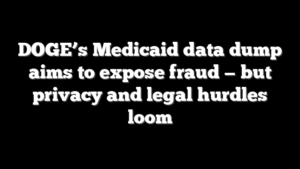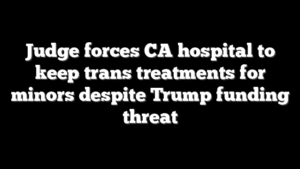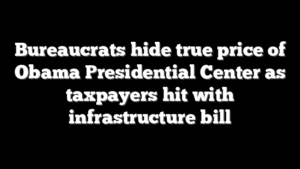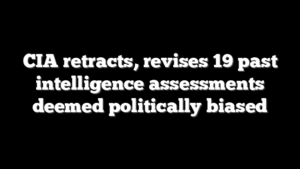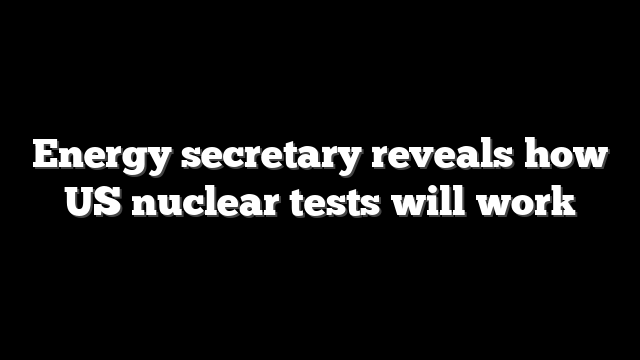
Energy secretary reveals how US nuclear tests will work
Energy Secretary Chris Wright revealed the U.S. will not be testing nuclear explosions, putting to rest questions over whether the Trump administration would reverse a decades-old taboo.
Testing will instead involve “the other parts of a nuclear weapon,” Wright told Fox News’ “The Sunday Briefing.”
“I think the tests we’re talking about right now are systems tests,” he explained. “These are not nuclear explosions. These are what we call noncritical explosions.”
His comments came after President Donald Trump announced the U.S. would reignite “nuclear testing” because other nations were doing so. The president made the announcement on the way to a meeting with Chinese President Xi Jinping.
WITH A NUCLEAR BACKDROP, TRUMP EASES TENSIONS WITH XI BUT MERELY RETURNS TO THE STATUS QUO
He didn’t specify whether he meant explosives, which haven’t been tested by the U.S. since 1992, or the weapons that carry them.
The only nation to conduct a detonation test in the last 25 years is North Korea in September 2017.
The president said he’d directed the Pentagon — which is responsible for testing nuclear-capable vehicles — to resume testing. The Energy Department would have jurisdiction over testing explosives.
TRUMP BREAKS 33-YEAR NUCLEAR TESTING SILENCE AS WORLD BRACES FOR DANGEROUS NEW ARMS RACE
“We’ve halted it years — many years — ago,” Trump said last week. “But with others doing testing, I think it is appropriate that we do also.”
Asked on Friday to clarify whether the U.S. would begin “detonating nuclear weapons for testing,” the president responded, “I’m saying that we’re going to test nuclear weapons like other countries do.”
Trump claimed in a CBS “60 Minutes” interview over the weekend that U.S. adversaries were secretly testing nuclear weapons.
“Russia’s testing nuclear weapons, and China’s testing them, too,” he said. “You just don’t know about it.”
China is rapidly expanding its nuclear silo and is expected to have nearly 1,000 warheads by 2030, according to Pentagon assessments. But Beijing has not conducted a nuclear weapons test since 1996. Russia has not been confirmed to have tested a weapon since 1990, but last week did claim to test two delivery vehicles: an undersea torpedo known as Poseidon and a nuclear-powered cruise missile.
In 1996, the United Nations adopted a nuclear test ban treaty. The U.S. signed the treaty, but the Senate rejected its ratification. Most other nuclear-armed states also did not ratify the document.
Still, it created a global norm against nuclear weapons testing.
The U.S. regularly tests unarmed nuclear-capable weapons.
Additionally, non-explosive or “subcritical” tests, which involve fissile materials but stop short of producing a chain reaction, have been conducted at the Nevada National Security Site for years. Officials say these experiments help validate computer models that simulate how aging warheads behave, allowing scientists to verify performance without explosive testing.
The U.S. has conducted more than two dozen such tests since the late 1990s.
“And again, these will be nonnuclear explosions,” Mr. Wright said. “These are just developing sophisticated systems so that our replacement nuclear weapons are even better than the ones they were before.”
Washington is currently undergoing a three-decade, $1.7 trillion transformation effort to replace aging warheads with updated versions.
Latest Political News on Fox News


